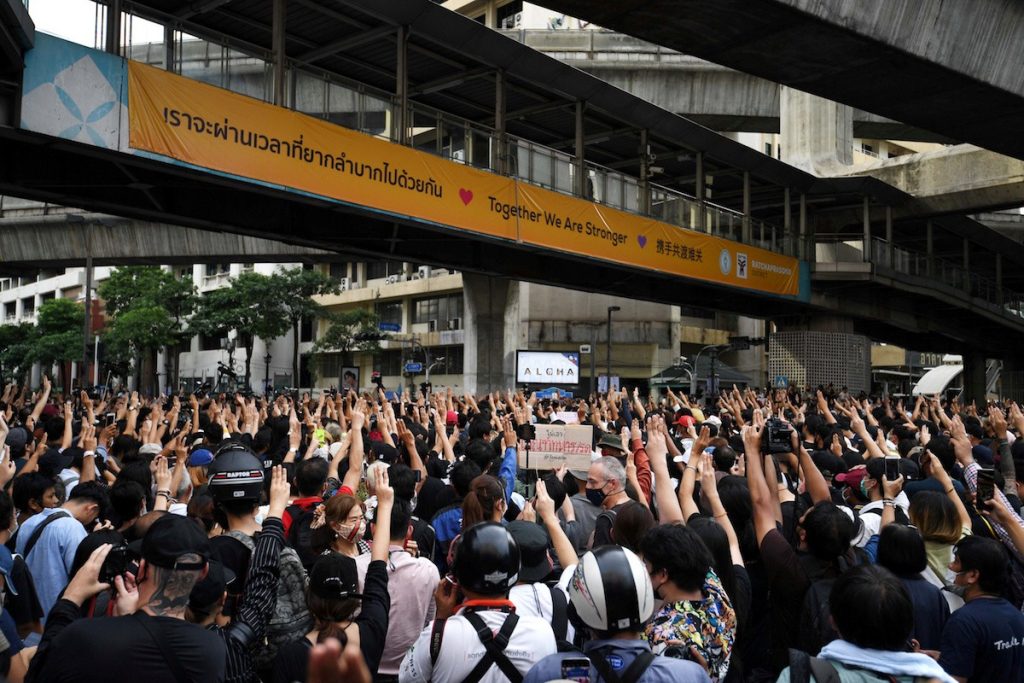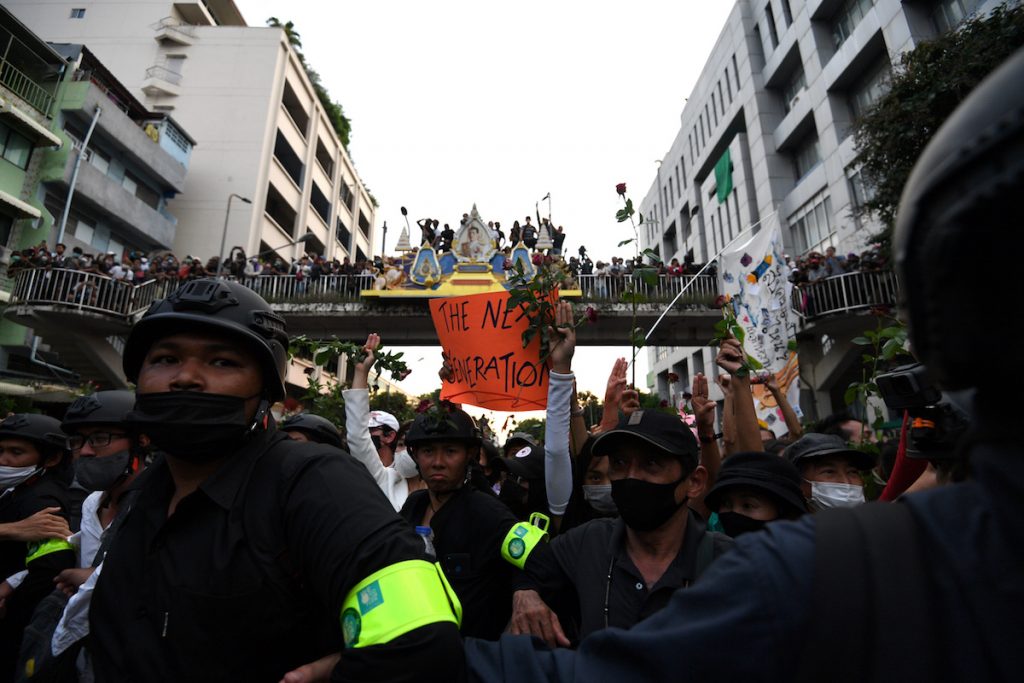
As anti-government protests continue in Bangkok, they are becoming more leaderless. This development is a conscious response to the arrest of their leaders who have been charged with violating the law (for some, not the first charge), as well as an attempt to prevent further arrests by adapting the “Hong Kong model”. Western media outlets have encouraged this by comparing the current situation unfolding in Bangkok to those that took place in Hong Kong.
But what have the Hong Kong protests achieved? And should this be a model that ought to be followed? Look at what the protesters’ have achieved in Hong Kong so far: Acute social divisions, the possibly fatal deterioration of Hong Kong’s status as a stable financial hub, and chaos on the streets that opened the way for Beijing to impose the sort of security laws that it could not otherwise have dreamt of imposing under normal circumstances, even after 2047. Who gained anything from this? Certainly not the ordinary people of Hong Kong.
That the protesters are proposing to import this self-destructive model is an indication of their lack of vision. Blocking Bangkok’s major retail district was hardly a wise first strategic move, considering the already devastating economic impact of COVID-19 and the precedents of previous protests in that area. For those with shorter memories, let’s just say that the protesters and the retailers got on like a looted mall (actually, several malls) on fire.
Now that protesters are starting to scatter to various transport intersections proves they are no different from the previous ‘dinosaur’ red and yellow protesters, who did exactly the same thing. When violence breaks out, as it already has, it is automatically blamed on “fake protesters”, also just like before. It’s yesterday once more. So, this isn’t a new wave. It is just another wave from the same old, unimaginative sewers of Thai politics.
For those cheering them on from the sidelines, it is perhaps worth remembering the lessons from the Arab Spring. There, the optimism faded fast as it collided with reality. The Egyptians ended up voting in the Muslim Brotherhood, before that regime was overthrown by a coup. Yemen, Syria, and Libya have all fallen into civil war.
To those who think this view is alarmist, there are elements in the protests who clearly seek the overthrow of the system, holding placards calling for the violent death of the monarchy and the establishment of a republic. The precedents there are not that great either — the tyranny of the Commonwealth of England, the Terror of the French Revolution, and the lawlessness of the Bolshevik Revolution — all models that the protesters swear by, if their social media is to be believed.

In a way, the Hunger Games salute is an appropriate symbol for this movement — if anyone bothered to read the books or see the film, (spoiler alert for those who have been living under a rock) in the end the regime that tried to replace the old one ended up being as cruel, until its leader was promptly killed by the heroine, who was then declared insane.
What then should be the solution?
Thus far the protesters’ demands are light on specifics: They want the prime minister to resign (then what?), that the constitution be amended (they do not say how), and that the monarchy be reformed (they also do not say how). Economically, their demand is to go back to the way things were — an economy reliant on unsustainable mass tourism and consumerism, where every university graduate should be guaranteed a job with an income that pretty much guarantees hyperinflation.
This is hardly a sustainable solution.
Nor is it imaginative or creative, ignoring the reality that every country is suffering from the COVID-19 pandemic, some (especially the protesters’ so-called model democracies) more than others and Thailand is one of those that has suffered the least. Even without the pandemic, the age of disruptive technology will not lend itself to the old cookie-cutter degrees. The protesters can call for and get a hundred regime changes and constitutional amendments, but nothing will change this reality.
In a way, the so-called ‘Milk Tea Alliance’ is an appropriate name for the loose coalition of unimaginative, derivative, naïve youths from Hong Kong, Taiwan, and Thailand. At the first taste, you enjoy its superficial sweetness, but too much of it and you get indigestion, then diabetes as your system collapses.
Who gains anything from this?
The western media perhaps, whose flagging ratings may improve with photos of photogenic young protesters until they move on to the next headline. International activist organizations with axes to grind and funding to find, maybe. But one thing is for sure — the beneficiaries will not be the ordinary Thai people who actually have to live with the consequences.
Source: Licas Philippines
0 Comments